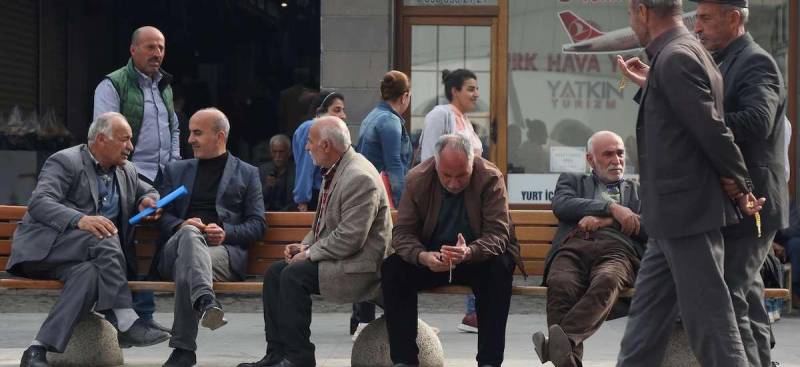Families of 10 inmates carried protest placards to the prison in the Bağlar southeastern Turkish city of Diyarbakır to demand the release of inmates who could be under threat from the COVID-19 pandemic last week. They were confronted by around 100 police officers at the prison gates, and went home.
The police say that families are not allowed to protest because all such events have been banned in Diyarbakır, the unofficial capital of Turkey’s mainly Kurdish southeast, until March 26. But the families are determined to continue fighting for loved ones they fear could be among the hardest hit by the coronavirus.
“I saw my husband last week,” one woman said. “Prison is an enclosed space, and it would be very easy for coronavirus to spread. My husband told me that there is no soap, and no hot water to shower with in the prison. The cells are very crowded. People are sleeping on the floor.”
Adding to these concerns, she said, was the lack of anti-bacterial sanitiser in the prisons and the poor-quality food served to inmates who do not even have the chance to go to hospital if they fall ill. The stress has taken its toll on prisoners’ mental health.
“Some of the inmates are considering suicide. My husband talks about it too,” she said. “At the very least we want them to be released temporarily because of the coronavirus, so that they can spend this time at home with their families, in a healthier environment.”
Yet while prisoners’ loved ones are fearful, the anxiety does not seem to have taken hold in other parts of Diyarbakır. As I stop by my children’s schools to pick up their books for their home schooling for the next two weeks, the streets are crowded with cars. I pass by a Starbucks, and it is packed. Other cafes and restaurants also look full.
I continue towards the central Sur district, the heart of Diyarbakır. Although there are somewhat fewer people on the streets, life in Sur still goes on. Stores and businesses are open. Restaurants serving breakfast are full. It seems the fear of the coronavirus has yet to reach the city.
I received a phone call from a friend, who just stopped by a large supermarket, and learned that she had run out of bleach. But local grocery stores are still fully stocked with bleach and pasta. The only shortage seems to be of the lemon cologne that Turks traditionally offer visitors for its pleasant scent and disinfectant properties.
I learned that a few court hearings have been postponed, but despite the delayed trials, there is still a long line in front of the building. Even with the deferrals, the courthouse is clearly still running in Diyarbakır, given that this city seems to be averaging a few lawsuits per resident.
I head to another district full of cafes and businesses. Though there are fewer people, groups of people are still gathering to chat. The tea garden in front of the municipal guesthouse is packed, as are public libraries. Passing buses are crowded. Throughout the day, I saw only one person wearing a mask. It seems that hospitals have taken some precautions, at least; they have suspended patient visits.
Elderly people, who are the group most at risk from the virus, seem to be the least concerned in the city. They are catching the sun in every square they can find. Many have just returned from pilgrimages to the Islamic holy sites in Mecca, and are socialising as usual. I veered towards one of the well-off districts, Diclekent whose hair salons are open and bustling, cafes are full, and I even see people furniture shopping. Neither coronavirus nor death seems to be of much concern around here.
Schoolbooks in hand, I returned home. I called my elderly relatives, who do not understand the gravity of the situation and are not taking necessary precautions. Some say, “don’t worry dear, coronavirus won’t affect us, we’re pious”; others offer theories of foreign meddling. Some predict that the coronavirus will not last in Diyarbakır’s heat for more than two months, while others retort that “it is the coronavirus that should be frightened of the Kurds.” After a few phone conversations I am left only with frayed nerves.
At night as I watched the news, I was startled by the sound of an explosion. I ran to the door. My little son called out, “don’t worry mom, that’s not the police, it’s fireworks – there must be a wedding.”
Weddings, funerals, court hearings, protests … For now, life in Diyarbakır still goes on as usual.
